"This Is It": An Oral History of the Broadway Shutdown, Part 3
As an usher tests positive for Covid-19, the theater community braces itself for the inevitable.
Business was booming. Nearly 15 million people had seen Broadway shows during the 2018-19 season. The total box office gross was $1.8 billion. And as the calendar pages flipped to January 2020, every theater had been booked for what was expected to be a prosperous spring, with 21 productions scheduled to open between the first of the year and the late-April Tony Awards cut-off.
By Friday, March 13, that was all moot. The curtain had unceremoniously fallen the afternoon before by order of New York State, as cases of the novel coronavirus ravaged the city and rapidly filled hospitals beyond capacity. There were hundreds of different ways to have seen this eventuality coming — audiences began to thin, whole companies and other theater personnel were getting sick — but Broadway lives by one motto: The show must go on.
The September 11 terrorist attacks kept Broadway closed for a few days. Labor strikes had darkened theaters in the past, but they were generally resolved within weeks. Covid-19 has caused the longest shutdown in the history of the Broadway industry, and while there are glimmers of hope on the horizon in the form of a vaccine, there is still no definitive end in sight.
As we hit the summer of 2020, I started documenting stories from across the Broadway community in an effort to make sense of it all. This is the third in a multi-part oral history of the Broadway industry shutdown, as told by the artists making theater eight times a week. These conversations have been lightly edited for clarity and nothing else, but they all paint a picture that could be a metaphor for the world itself: we were all blissfully naive to impending disaster, until.
Read each part here as they become available every Monday.
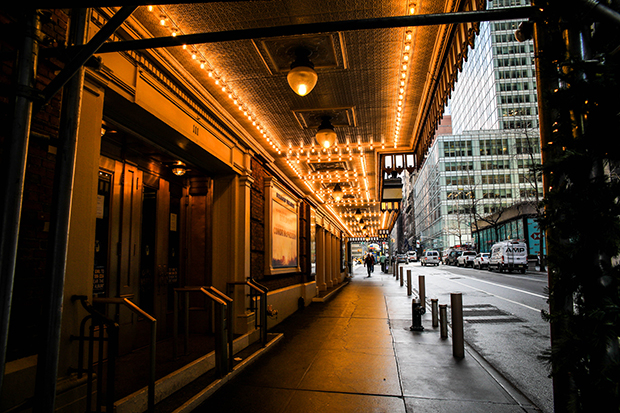
In This Section
Randy Adams, producer of Come From Away
John Raymond Barker, stage door attendant
Miriam Baron, theatergoer and substitute usher
Camille A. Brown, choreographer of Aida workshop
Joe DiPietro, book writer for Diana: A True Musical Story
Patsy Ferran, actor in Who's Afraid of Virginia Woolf?
Sue Frost, producer of Come From Away
Felicia Gordon, television producer/author's wife
Tom Kitt, composer of Flying Over Sunset and The Visitor
Marc Kudisch, actor in Girl From the North Country
Michael Lepore, actor in Sing Street
Debra Messing, actor in Birthday Candles
Rory O'Malley, actor in Hamilton in Los Angeles
Lynn Nottage, librettist of Intimate Apparel
Brad Oscar, actor in Mrs. Doubtfire
Lauren Patten, actor in Jagged Little Pill
Jared R. Pike, usher
Shereen Pimentel, actor in West Side Story
Scott Rollison, production stage manager of Hangmen
Janice Simpson, theater critic and Outer Critics Circle Award nominator
Ali Sousa, theatergoer
Blair Underwood, actor in A Soldier's Play
Sharon Wheatley, actor in Come From Away
Tony Yazbeck, actor in Flying Over Sunset
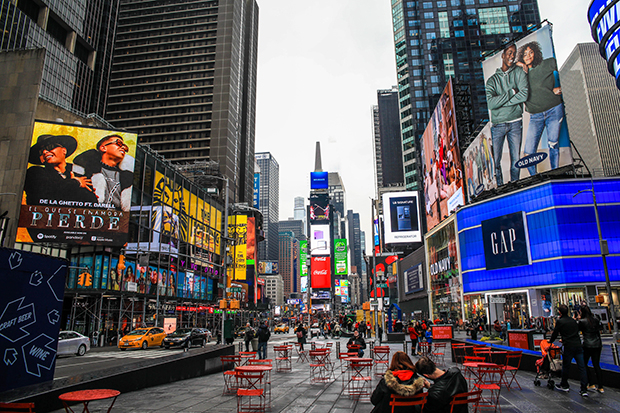
Debra Messing: During our first week of rehearsal for Birthday Candles in March, it didn't feel like it was possible for it to come in and wipe everything out. It was just starting to build. It was into the second week, the beginning of that second week, when there was just a very different feeling in the rehearsal room.
Lynn Nottage: I got sick that weekend. My daughter was here, and she got very sick, and subsequently, I got it. I don't even know if it was Covid or not, but I had a cough. I didn't want to take any chances if I had Covid and go to the theater and infect the singers. So I didn't go to the last performances of Intimate Apparel.
Janice Simpson: I had 30 shows booked to see between March and April. That weekend, I saw Endlings at New York Theatre Workshop, I saw We're Gonna Die at Second Stage, and I saw West Side Story.
Felicia Gordon: We went to see The Unsinkable Molly Brown on Saturday the 7th and it was not full. There were a lot of empty seats, definitely next to me, maybe on either side of me. But it was a matinee at Abrons Arts Center, which is really hard to get to, so I don't know if that had anything to do with it or if people were worried about getting Covid. They were giving out slips of paper with the programs to make the show a little interactive, and it said, "This is who you would have been if you were on the Titanic," and then at the end of the show, you see if your passenger survived or not. You, David, didn't want to touch the paper, because the ushers were handing them out and they weren't wearing gloves. We saw Six that night and it was packed. After the show, we went next door to Glass House Tavern, which was pretty empty when we got there, but by the time the rest of the eight o'clock shows let out, it filled up like usual on a Saturday night. A young woman stopped to talk to you. She was in Mrs. Doubtfire, and they were about to start previews that Monday, so you guys talked about that for a little bit.
Marc Kudisch: We had a great weekend after our opening of Girl From the North Country. On our off day, March 9, we went to record the cast album, and there was no talk of corona at all.
Ali Sousa: I saw Company on March 9. We were in standing room and I think I got the last tickets they had that morning. They only had four to give out. It was slammed. I remember a very enthusiastic, packed house. The cue line for "Ladies Who Lunch" got long applause before the song even started.
Joe DiPietro: That Monday night, March 9, we invited the cast of Moulin Rouge! to see our show, Diana. It was their night off, but we were in previews, so we had a performance. The Broadway musical community is very small, so I knew all of them, and at intermission, after the show, we were hugging, kissing, wishing each other well, all that stuff that you're suddenly not supposed to do anymore. It still didn't seem that dangerous and we were happy to see them. But by then we were waiting. I was sitting down with our producer every day saying, "Is the show happening tonight?"
Tom Kitt: The Tuesday before the shutdown, I went to Lincoln Center to record a song from Flying Over Sunset with Carmen Cusack. I said, "I just coughed; am I supposed to be here?" and she replied "We're all feeling it. We're all wondering how we're supposed to be." We did the song, and in that moment, I had a sense of "I'm going to remember this for a long time." Somehow, art is happening, but it feels so loaded.
Marc Kudisch: We get back to work on Tuesday, March 10, and we were called to a conversation with our producers before the show. We knew it wasn't a bad conversation, because the reviews were great. We all knew it was about corona. And I was the first one to raise my hand and say, "So what do we do when we shut down?" Because by then it was inevitable. And this is no fault of theirs, but they were like "We're not shutting down. Nobody's shutting down."
Lauren Patten: On March 10, we came to work and two cast members were out, both with possible Covid symptoms. I know that one of those people did have Covid — the one who had a fever — but I don't know if the other one did or not.
Felicia Gordon: We saw Girl From the North Country on Tuesday the 10th. It looked like there was a long line to get in, but I remember the publicist standing there with a stack of press tickets, and she thanked us for coming, because a lot of press had been canceling. The guy sitting next to me coughed throughout the whole show, and I did start to get a little nervous.
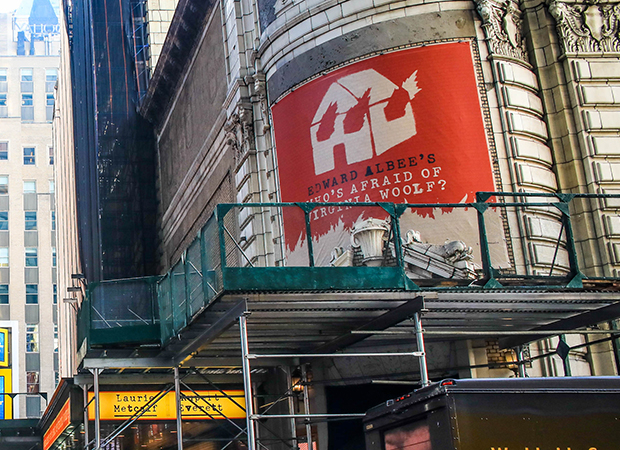
Lauren Patten: On Wednesday, March 11, we heard the news that an usher just across Shubert Alley at the Booth Theatre [where Who's Afraid of Virginia Woolf? was playing] had tested positive.
Jared R. Pike: The usher was a sub usher, so it was an usher that had been bouncing around. There were a couple of theaters they had worked at.
Scott Rollison: That got everyone concerned. It was near us, not a distant idea.
Marc Kudisch: I thought "Well, shit. Now that it's in a theater, it's in every theater."
Shereen Pimentel: The second that came out was when everyone was like Oh, OK.
Randy Adams: That's when the writing was on the wall.
John Raymond Barker: That was the It's hit Broadway feeling. What we came to realize was that when it came to Broadway, it was already there for two weeks.
Patsy Ferran: I was in Whole Foods when I got the call saying that it was one of our ushers at the Booth that had tested positive. They hired a company to disinfect everything, with all the people in those white suits. Then, there was a meeting in the theater around lunchtime with everyone that worked there. They were going to send out a press release saying what the situation was, and that we would continue with the show that night. The director, Joe Mantello, was amazing, standing up and going, "Did you want to ask the actors if they're comfortable to continue?" I was sitting next to Russell Tovey, and he looked at me and he was sort of like, "How are you doing?" and I was, like, welling up because I didn't know how I felt. I was just nervous. But we did continue, because it felt like not doing it was worse than doing it.
Joe DiPietro: That usher had also ushered at our show, but it all still seemed…not far away, just surreal. And then Christopher Ashley and David Bryan and Kelly Devine and I sat down and said, "You know what? Let's get as much work done now, because if we shut down, we don't know when we're going to reopen." I have to say, our actors really stepped up to the plate. You think they would be scared, but they were giving it their all.
Sue Frost: Our Come From Away company had been accustomed to full houses, and you were starting to see that erosion in the audiences. It wasn't huge, but for a show that was always full, there were a lot of empty seats.
Sharon Wheatley: Come From Away is always sold out. Always. The Wednesday matinee before the shutdown, they announced, "The audience is light." And I was like, "I haven't heard that since Cats."
Miriam Baron: That night, I went last minute to see Hangmen with a co-worker and her husband, who had an extra ticket. It was a nice night, so I walked down from the Upper West Side to the theater. I usher as a sub for Jujamcyn, so I stopped by The Book of Mormon, which was my main place, to say hi to some friends, and they were nervous about what was coming. Then I walked to the Hirschfeld to say hi to the head usher there, because I hadn't seen her in a long period of time, and I was pregnant and showing. She was like, "Don't come near me; I have a cold." Then I walked over to Hangmen and it was almost like an opening night. There were so many people. The first usher who took my tickets had gloves on and I was happy about that. The second usher who took my ticket did not have gloves on, so I was a little wary about taking my ticket back. And I collect my ticket stubs, so what do I do?
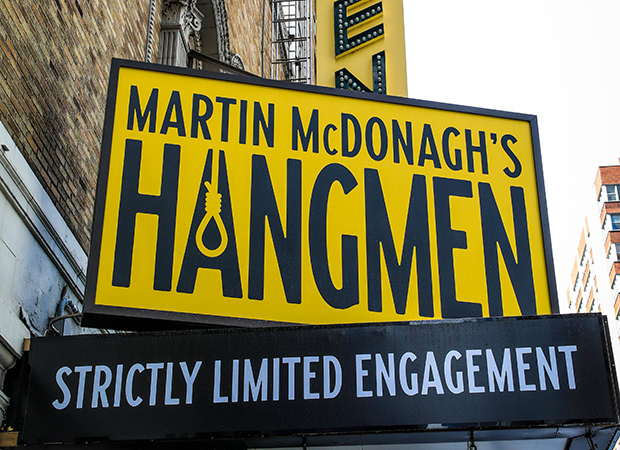
Janice Simpson: I was down at the Barrow Street Theatre on the 11th seeing a preview of Heather Christian's Oratorio for Living Things. It was in a small room and people were looking around at one another, and I was looking around and thinking, "This is a really small room." Our seats were a little distanced from some of the others, and I was feeling relaxed about that. And then the performance started, and it was environmental, so actors were moving through the aisles, and it's an oratorio, so they were singing the entire time. I found myself being very uncomfortable. Really uncomfortable. I remember thinking, "These people are all over us and they're singing."
Michael Lepore: We saw To Kill a Mockingbird that night. They were doing $50 tickets, which was so awesome, and we just went right to the box office and got them that day. We had amazing seats. I remember being a little scared about being around a lot of people, but we ended up in a pretty empty orchestra section, so we were far enough away from people. The show was beautiful.
Patsy Ferran: We had a great audience that Wednesday night. We didn't know whether anyone was going to turn up, because they had to notify all the ticketholders about the situation. We didn't expect anyone. What was amazing — people turned up anyway. And they were particularly vocal and generous. They were very engaged.
Tony Yazbeck: We had a dress rehearsal on Wednesday for Flying Over Sunset. My wife, Katie, came, and a really good friend came, and I was so excited, because it was like, "Two people I know finally saw what we were working on for a year!" Nobody had seen it at that point. And then we were going to have our first real audience on Thursday and I was freaking out. I'd never been so excited to get to the theater.
Rory O'Malley: We had our final dress rehearsal for Hamilton with no audience on March 11 at the Pantages. We left not knowing what was going to happen for the March 12 preview.
Blair Underwood: We took our bow in A Soldier's Play that Wednesday night, and Rob Demery, who usually stands to my right during the curtain call, says, "Dude, this might be our last bow." And I said, "Wow, man, that would really suck if we had our final performance and didn't even realize it."
Lauren Patten: Our head carpenter has an office in the basement with a big TV, and he always has something playing. I cross through the basement for most of my cues, so I always see what's on his TV. That night, it was all over the news that the NBA was shutting down.
Camille A. Brown: When the NBA shut down, that's when we knew we were into some serious stuff.
Brad Oscar: We had the excitement of previews and we were rehearsing every day. You don't want to think that the rug could be pulled out from under us at any second. Pro-sports, opera, theater, it's the same thing. When we heard the NBA shut down, I turned to my stage husband, J. Harrison Ghee, and said, "This is it."
Patsy Ferran: Little did we know it was going to be our last show.
Lauren Patten: I went to the stage management office before I left that night and said, See 'ya tomorrow, maybe! I said it as a joke.
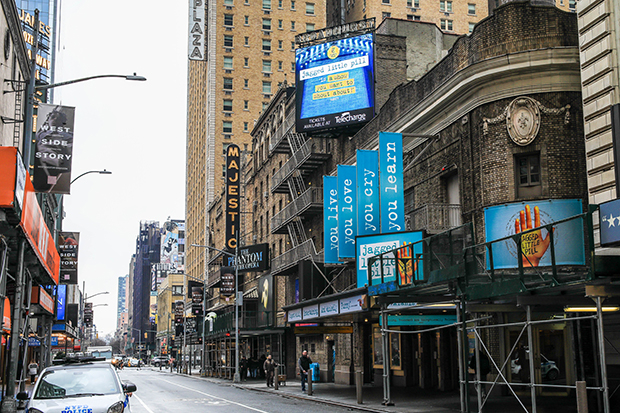
To be continued on Monday, February 15.








